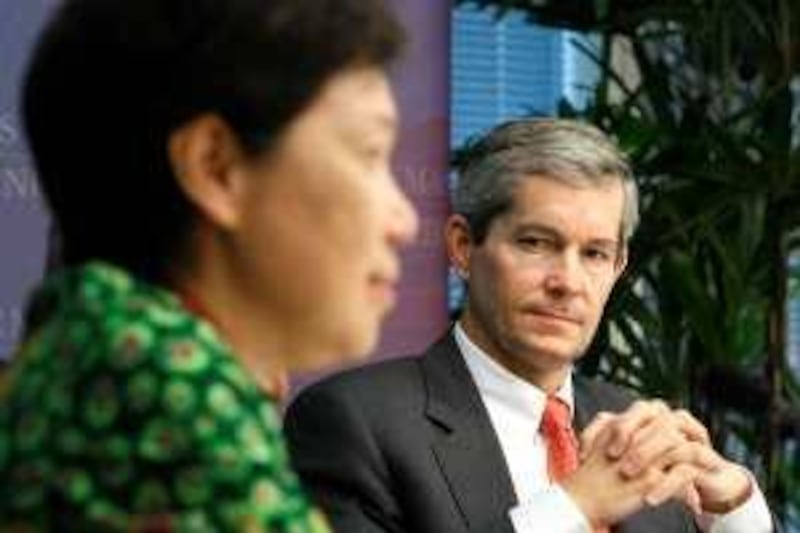Temasek's first flirtation with foreign leadership has ended three months before it began. Charles "Chip" Goodyear, who was due to start as the chief executive of the Singapore sovereign wealth fund on Oct 1, will not be taking up the job, citing strategic differences. This is the man Lee Kuan Yew, the founder of modern Singapore, described as "the best" after his appointment in February. Temasek and Mr Goodyear "have concluded and accepted that there are differences regarding certain strategic issues that could not be resolved", the company said on Tuesday. Financial markets are now wondering if Temasek plans to reveal exactly what the insurmountable differences between Temasek and Mr Goodyear were.
A former chief executive of the Australian miner BHP Billiton, Mr Goodyear, 51, had been lined up after an exhaustive search to replace Ho Ching, the wife of the Singapore prime minister Lee Hsien Loong and the daughter-in-law of Lee Kuan Yew. Mr Goodyear's departure leaves Ms Ho at the helm of the wealth fund. He was recruited to head up the S$127 billion (Dh322.88bn) fund, which owns five of Singapore's 10 biggest companies, after investments in financial companies under Ms Ho were battered in the global credit crisis.
But it looks like his approach may have been seen as too risky for Temasek. Mr Goodyear presided over record profits at BHP, the world's largest mining company, and a 350 per cent rise in the share price from 2003 to 2007. But his aggressive approach may have set alarm bells ringing. Singapore's economic strength has been built on a conservative approach and there were fears that Mr Goodyear may have been preparing to take Temasek on a radical course that would sit uneasily with its culture.
"In the short time with us, Chip has started a number of initiatives which I believe will help strengthen the Temasek platform," Ms Ho said in a statement. "I am sorry he is unable to continue with the leadership transition and hope to complete the initiatives that he has started." Mr Goodyear's response, included in the statement, was: "I'm sorry that we are unable to continue with the leadership transition. Temasek has a fantastic platform and I wish the board, Ho Ching and the team all the best." Founded in 1973, Temasek is deeply embedded in Singaporean corporate life. It owns significant stakes in the nation's core entities, including Singapore Telecommunications and Singapore Airlines.
Temasek also has major holdings in regional players with a political flavour. It owns a 19 per cent stake in Standard Chartered Bank, and has holdings in Bank of China and China Construction Bank. "It does raise questions about whether Singapore and Temasek really wanted to take a new direction," Brad Setser, a fellow for geoeconomics at the Council on Foreign Relations in New York, told Bloomberg News. "But we won't know the answer to that until we know who the new leader of Temasek will be and what policies will be put in place." Analysts at Nomura said last month Mr Goodyear might have been considering ways to increase Temasek's borrowings to help boost its investments in "under-represented" industries such as energy and resources.
He may also have decided on a more active approach in dealing with the operations of Temasek's majority-owned companies, which is the kind of move that would have brought him into conflict with the powers that be in Singapore. Despite Temasek's reputation for conservatism, Ms Ho has been a busy investor in her tenure since 2004, driving the fund's expansion outside Singapore and increasing financial assets to 40 per cent of Temasek's portfolio. Temasek has been hurt by the financial crisis. In the first quarter of this year it sold its 3.8 per cent stake in Bank of America at a loss that may have totalled S$4.3bn. It also sold its holdings in Barclays, based in London, for a reported loss in December and January.
Last week, the Singapore government announced the country had grown at its fastest rate in six years and lifted itself out of recession. business@thenational.ae





